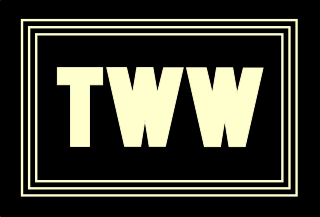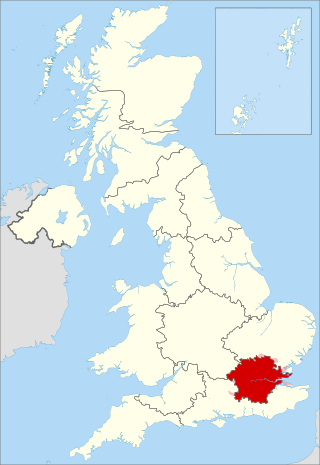
The Independent Television Authority (ITA) was an agency created by the Television Act 1954 to supervise the creation of "Independent Television" (ITV), the first commercial television network in the United Kingdom. The ITA existed from 1954 until 1972. It was responsible for determining the location, constructing, building, and operating the transmission stations used by the ITV network, as well as determining the franchise areas and awarding the franchises for each regional commercial broadcaster. The authority began its operations on 4 August 1954, a mere four days after the Television Act 1954 received royal assent, under the chairmanship of Sir Kenneth Clark. The authority's first director general, Sir Robert Fraser was appointed by Clark a month later on 14 September.

Wales Television, known on screen as Teledu Cymru and often abbreviated to WWN, was the Welsh "Independent Television" contractor awarded the franchise area serving North and West Wales, from 1962. It began transmitting on 14 September 1962, and ceased on 26 January 1964 through financial failure; the franchise area was soon combined with the South Wales and West of England area, operated by TWW. TWW retained the Teledu Cymru name in the former WWN franchise area, as did successor Harlech during their emergency transitional franchise, only retiring the name when they were able to officially take over.

ABC Television Limited, popularly known as ABC Weekend TV, was a British broadcaster which provided the weekend service in the Midlands and Northern England regions of the Independent Television (ITV) network from 1956 to 1968. It was one of the "Big Four" companies that between them produced the majority of ITV networked programmes during this period.

Television Wales and the West (TWW) was the British Independent Television contractor for a franchise area that initially served South Wales and West of England until 1968.

ITV Granada, formerly known as Granada Television, is the ITV franchisee for the North West of England and Isle of Man. From 1956 to 1968 it broadcast to both the north west and Yorkshire on weekdays only, as ABC Weekend Television was its weekend counterpart. Granada's parent company Granada plc later bought several other regional ITV stations and, in 2004, merged with Carlton Communications to form ITV plc.

ITV1 is a British free-to-air public broadcast television channel owned and operated by the British media company ITV plc. It provides the Channel 3 public broadcast service across all of the United Kingdom except for the central and northern areas of Scotland where STV provides the service.

ATV Network Limited was a British broadcaster, part of the ITV network. It provided a service to London at weekends from 1955 to 1968, to the Midlands on weekdays from 1956 to 1968, and subsequently to the Midlands all week from 1968 to 1982. It was one of the "Big Four" until 1968, and the "Big Five" after 1968, that between them produced the majority of ITV networked programmes. In 1982, ATV was restructured and rebranded as Central Independent Television, under which name it continued to provide the service for the Midlands.

Thames Television, commonly simplified to just Thames, was a franchise holder for a region of the British ITV television network serving London and surrounding areas from 30 July 1968 until the night of 31 December 1992. Thames Television broadcast from 09:25 Monday morning to 17:15 Friday afternoon at which time it would hand over to London Weekend Television (LWT).

London Weekend Television (LWT) was the ITV network franchise holder for Greater London and the Home Counties at weekends, broadcasting from Fridays at 5.15 pm to Monday mornings at 6:00. From 1968 until 1992, when LWT's weekday counterpart was Thames Television, there was an on-screen handover to LWT on Friday nights. From 1993 to 2002, when LWT's weekday counterpart was Carlton Television, the transfer usually occurred invisibly during a commercial break, for Carlton and LWT shared studio and transmission facilities.

Westward Television was the first ITV franchise-holder for the South West of England. It held the franchise from 29 April 1961 until 31 December 1981. After a difficult start, Westward Television provided a popular, distinctive and highly regarded service to its region, until heavy competition led to its franchise not being renewed by the IBA. Westward launched the career of many broadcasters who became well known nationally, won numerous awards for its programming, and heavily influenced its successor, TSW.
The history of ITV, the United Kingdom and Crown Dependencies "Independent Television" commercial network, goes back to 1955.

ITV Wales and West, previously known as Harlech Television (HTV), was an ITV franchisee in the United Kingdom until 31 December 2013, licensed to broadcast by the regulator Ofcom.
This is a list of British television related events from 1968.

The St Hilary transmitting station is a facility for telecommunications situated close to the village of St Hilary, Glamorgan in the Vale of Glamorgan, Wales, in the United Kingdom. It comprises a 229-metre (750 ft) guyed mast with antennas attached at various heights. The site was established in 1958 for Independent Television transmission on VHF. Transmissions from the site include FM radio, DAB radio and mobile telephone signals.
In the 1960s and 1970s, an envisioned fourth UK television service was popularly referred to as ITV2, before the launch of Channel 4 in November 1982.
This is a timeline of the history of the British broadcaster Yorkshire Television. It has provided the ITV service for Yorkshire since 1968.
This is a timeline of the history of Granada Television, and of the television interests of its former owner Granada plc.
This is a timeline of the history of ITV in Wales, including the current service ITV Cymru Wales. It does not include events that affect the whole UK network.
This is a timeline of the history of the British television service HTV West. "HTV West" and "ITV West" were the service names for the ITV service in the West of England from 1970 until 2009, after which the service name "ITV West Country" has been used across the West and South West of England. The "West" service was a sub-region of the franchise for Wales and the West.
This is a timeline of the history of television in Wales. It does not include events that affect the whole UK.













